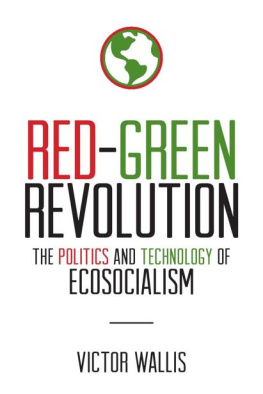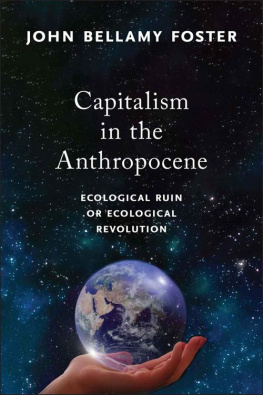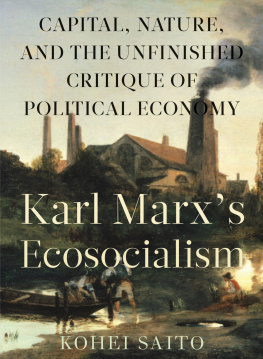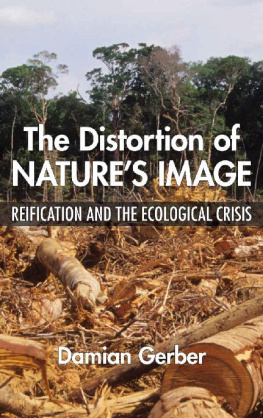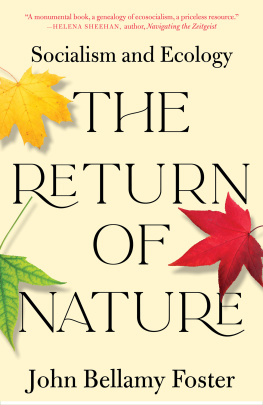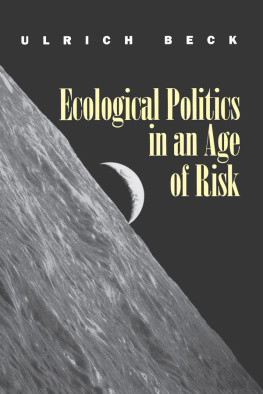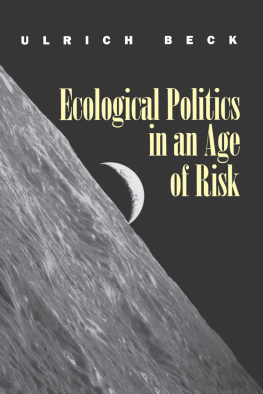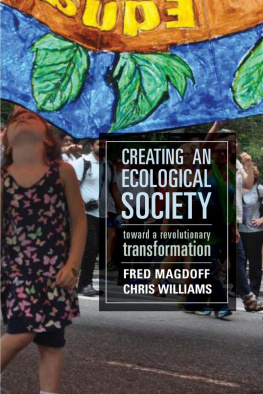Red-Green Revolution
The Politics and Technology of Ecosocialism
Victor Wallis
Political Animal Press
Toronto Chicago
Copyright 2018 Victor Wallis
All rights reserved. No part of this book may be reproduced, stored in a retrieval system, or transmitted, in any form or by any means, without permission in writing from the publisher or a licence from The Canadian Copyright Licensing Agency (Access Copyright). For a copyright licence, visit accesscopyright.ca.
Political Animal Press
www.politicalanimalpress.com
Distributed by the University of Toronto Press
Cataloguing data available from Library and Archives Canada
ISBN978-1-895131-29-1
Cover design by Kevin Cockburn
To Inez
Contents
Landmarks
Page List
Preface
Over the quarter-century of this books gestation, the alarm signals that struck me as I began working on it have risen to an almost deafening volume. Climate scientists are constantly finding that their dire projections pale in comparison with the actual pace at which life-sustaining natural infrastructures are breaking down.
The disaster that ecological activists of the last half-century have sought to prevent is already vividly present. Its most dramatic expression, apart from the endlessly repeated scenes of fire, flood, parched earth, and emaciated polar bears, is the tens of millions of refugees, desperate for a place to live. Some are fleeing sea-level rise and flooded or storm-battered homes; others are fleeing wars precipitated by sustained, drought-induced collapses of the food supply (as in Syria, Central Africa, and Central America). Still others are fleeing wars and repression that reflect long-standing imperialist projects, but whose initiators have become ever more intransigent as they seek to ward off the prospect of a diminished resource-base.
Increasing percentages of the refugees, if they survive their typically harrowing treks or dangerous sea voyages, come up against vast numbers of agents trained, armed, and paid to stop them. This drive to stop them is promoted by a ruling class which at the same time relentlessly stokes the economic engines of capital that gave rise to the climate crisis in the first place. While the top US mouthpiece of this ruling class, along with his acolytes at the Environmental Protection Agency, mocks the reality of climate change, the military leaders who command the systems armed enforcers have had no hesitation (for at least the last fifteen years) in publicly situating what they acknowledge to be the consequences of global warming the droughts, floods, and hurricanes that directly or indirectly have pushed mass migration to its current extreme levels at the center of their concerns.
The alternatives are sharply etched. The currently dominant forces, rather than join the fight against climate change, erect walls to block out its victims. By militarizing the problem, they not only draw resources away from any possible remedial steps; they also accelerate the spread of devastation.
What other path can be chosen? That is the subject of this book. The short answer is that a radical power-shift is needed. But its one thing to recognize this and quite another to draw the indispensable majority into the struggle to achieve it. Part of that task consists in relating the overarching ecological goal to popular aspirations at every level. Another part consists in developing a political mechanism a political force that can embody and enforce the collective interest. Yet another involves discovering, explaining, advocating, and applying all the measures needed in order to slow down and, where possible, reverse the dangerous environmental trends.
Reversing at least some of these trends is indeed still possible. It will certainly require the mix of alternative energies, conservation practices, and social reorganization discussed in this book. The culmination of work along all these dimensions, insofar as it can be achieved, will be the restoration of biodiversity. Restoring biodiversity will entail, among other things, restoring moisture to parched earth and drawing carbon back out of the atmosphere and into the soil, where it can support life rather than endangering it.
The struggle to restore the soil and the struggle to create a just social order have up to now been carried on mostly as parallel political movements, without much mutual awareness, let alone collaboration, at the mass level. Such collaboration, however, or at least the striving to attain it, is the true centerpiece of RedGreen Revolution.
Many people have contributed to this book. My greatest intellectual debts will be apparent in the text and the footnotes. Particular chapters have been improved, vitally in some cases, by comments from readers listed in the Acknowledgments.
I am deeply grateful to Alex Wall and Lewis Slawsky of Political Animal Press for their encouragement and to Alex especially for his close reading of the entire text and his many valuable suggestions. I thank Stefan Schindler for putting us in touch.
For the original development of the essays that make up the core of the book, I am grateful to the editors and, in the case of Socialism and Democracy, editorial board members of all the journals in which the pieces first appeared. I received especially important substantive comments on Chapter 1 from the late James OConnor, on Chapter 5 from John Bellamy Foster and Fred Magdoff, and on Chapter 8 and the Introduction from Johanna Fernndez.
My life-partner Inez Hedges has been with this project from its inception. Her moral support and her patience have made my work possible. She read every chapter in its initial version, always holding me to high standards of communication while setting a distinguished example with her own writings on the political dimensions of film and literature. We have learned to express gratitude in many languages; I do so here with my dedication.
Victor Wallis
Somerville, Massachusetts
April 2018
See Ai Weiweis 2017 documentary, Human Flow, where the number of refugees is given as 65 million.
Todd Miller, Storming the Wall: Climate Change, Migration, and Homeland Security (San Francisco: City Lights Books, 2017), 30.
Why Ecosocialism?
It is increasingly apparent that the conditions of lifenot only for humanity but for other species as wellare being undermined. Most people, even in the United States (where environmental issues are routinely downplayed by opinion-makers), know that there is a real threat to our collective survival. But the scenario is so vast, the problems so complex, that its hard for us to feel that we can respond in any clearly definable way. And the demands or seductions of daily life are too compellingfor most of usto allow us to envisage sustained and effective resistance. Those who are able to face the looming reality can easily feel trapped. Walter Benjamins prescient metaphor of our being caught in a train without brakeshis image of progresscomes easily to mind.
To puncture the resulting sense of helplessness, we need an approach that is at once immediate (short-term) and comprehensive (long-term). A comprehensive approach is a radical one. It embraces every aspect of reality. Without such panoramic sweep, we cannot even begin to counter the multifold scale on which the threats to life present themselveswhether in the form of war, hunger, pollution, illness, repression, insecurity, or insanity. It is hard to think of a social scourge that is not related to one of these. These are in turn related to each other, and all are related, in their present incarnations, to environmental breakdown, which manifests itself not only at a global level, but also in the immediately felt disruption of natural settings and rhythms, in the accelerated pace of human activity, and in the artificial separation of humansbehind a phalanx of walls and machineryfrom the rest of the natural world.

